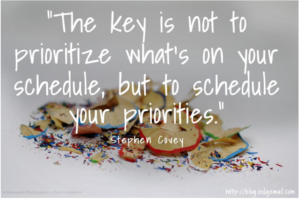It wasn’t all that long ago (February 2018) that my 92 year old mother – a 7 time cancer survivor, indelibly independent, feisty female – passed. It was a difficult time for our family. Although my husband Joe and I lived only a few miles away we couldn’t provide Mom with all the assistance she needed and she “absotively, posolutely” would not consider leaving her home of 35 years. We were so stressed, panicked, and desperate that my daughter had to temporarily leave her grad school program in Minnesota and live with Gamma for almost a year. We didn’t know what else to do. Then one of Mom’s doctors gave us a copy of Retirement Connection and everything changed. For example, Mom insisted on an attorney who truly understood seniors and thanks to Retirement Connection we were able to find an elder law specialist who specifically reached out to, and focused on, her age group. Thanks to Retirement Connection we found a hospice that had a pet care coordinator – who even knew that was a thing? – to place her incontinent cats, Asia and Australia. Retirement Connection even helped us find non-medical senior care providers who patiently and graciously provided Mom with cognitive, behavioral, functional and social support (Mom described her primary caregiver as “the second daughter I never had”). Without Retirement Connections’ clear, concise (but complete), easy-to-access info we could not have found the exceptional people and programs that made Mom’s last few months a positive-as-possible experience. Thank you from the bottom of our less-stressed heart muscles.
Sue Horn, Avamere Court at Keizer
When I moved here 8 years ago, I didn’t know Salem from Keizer. I was told to call Amy Schmidt and she would give me a place to start. WOW! Amy not only took the time to introduce me to key people in this area but also shared her guide with me. I use the Retirement Connection Guide faithfully- it is my resource Bible. It is such a wonderful tool to grab and help loved ones or a prospective mover that is working to figure things out. And what a great place to advertise…. I get leads from the guide throughout the year. Amy has set up education pieces for us to learn from and she herself is a wealth of knowledge … this is very motivational for me. I can call her or one of her team members and I am treated with respect and they always take the time to assist. The customer service is impeccable and very much appreciated. THANK YOU AMY AND YOUR TEAM AT RETIREMENT CONNECTION!
Schedule Your Priorities
“The key is not to prioritize your schedule, but to schedule your priorities.”
– Stephen Covey
Do you manage your schedule or does it manage you? I started my business 10 years ago with 2 toddlers because I wanted more time with family. But 3 years into the work, my 4 year old told me I was a bad mommy- and he was right. I was a good person, but not the most available parent. If someone looked only at your calendar and made a judgement based only on that- what appears to be your priorities? It is never too late to make a change. Good luck!
Multiple Dimensions of Wellness
Seniors find they live happier, more fulfilled lives when a holistic approach to wellness is taken. Here’s a glimpse at the many dimensions of wellness that are nurtured and promoted in today’s Life Plan Communities, also known as Continuing Care Retirement Communities or CCRCs.
1.Physical Wellness: Physical activities are planned and directed by fitness professionals in the community. These can include exercises planned for the resident’s specific needs and abilities, such as improving range of motion, core strength, or balance. Group classes in the community may include yoga or tai-chi, walking clubs, dance, or water aerobics.
2. Emotional Wellness: Support for the challenges that come with aging can give seniors comfort and strength in difficult times—and learning to cope with and adapt to life’s changes builds emotional well-being. This support can take the form of grief and mental health counseling, support and peer groups, informal circles of friends, and interactions with staff members.
3. Social Wellness: Socialization increases engagement, reduces isolation, and improves outlooks. Residents may enjoy card games, interest-based clubs, musical performances, holiday parties, group excursions and other activities that bring them together with others.
4. Intellectual Wellness: Intellectual activities boost cognitive function, stimulate the brain, and fuel lifelong learning. In the community, residents might engage in brain games and exercises, book groups, trivia contests, educational seminars, discussion groups, or tech workshops.
5. Vocational Wellness: Seniors have valuable work and life skills that can benefit the entire community. Residents can share their knowledge by teaching others, volunteering, building something, or leading discussion groups. Many CCRCs provide space for painting studios, woodworking, and other arts and crafts.
6. Environmental Wellness: A warm and comfortable environment in the retirement community enhances residents’ lives. This can encompass gardens and green spaces; walking paths; clean, bright surroundings; a friendly, caring staff; and festive seasonal decorations.
7. Spiritual Wellness: A strong spiritual sense can offer hope, strength, and peace. In the community, residents might nurture their spiritual selves through on-site worship services, meditation, religious studies, music performances, and more.
8. Health Services: Life Plan Communities offer caring, attentive support especially suited to seniors’ health needs as they change over time. Knowing services are available and a plan is in place before a change in health
This multifaceted approach through the 8 Dimensions of Wellness will positively impact the lives of older adults, providing enrichment, inclusion, purpose and a plan for future care needs.
Article Provided By:
Capital Manor
503-877-2927
www.CapitalManor.com
Search Retirement Connection Listings for Residential Care Facilities
Search Residential Care Facilities for Grants Pass
Search Residential Care Facilities for Klamath Falls
Search Residential Care Facilities for Medford
Search Residential Care Facilities for Roseburg
Security and online Senior Living Referral Services
While researching Senior Living options online for yourself or a loved one you may be unaware of what happens with your information, and the level of your own security.
If you google search Assisted Living, a list of Online Senior Referral companies will appear. They require you to enter your information that includes: phone number, email, address, health and finances. All before being directed to a list of options.
These companies also put you on a “list.” That list is sent to numerous communities where your information will be entered into multiple databases and viewed by anyone that can access that data. You will then receive emails and phone calls from every community on the “list.”
Once the online service puts you on their list they “own” you as a “lead.” This remains true whether you move in soon, years later or even correspond with that company. This is how they receive compensation.
DO NOT give out your information to receive pricing or a list of communities.
A secure way to narrow down Senior Living options is to use a Local Senior Living Advisor. They will be willing to meet with you, in person, to assess your loved ones’ specific needs.
The Advisor will then, recommend the best options, coordinate the tours and take you to see those recommended options.
A Trusted Senior Living Advisor visits communities regularly and knows whom has stable staff, happy residents, good food and quality care. Online Referral companies are unable to provide this level of service.
A Local Senior Living Advisor will be your one point of contact. Only that advisor will have your information unless you wish to give it to the toured communities. This will eliminate needless contact from multiple communities and from the online referral service itself.
A Local Advisor can assist you with negotiating costs, recommend resources for: downsizing, selling a home, moving and assist with the necessary paperwork to get moved into a community.
Article Provided by:
Senior One Source
503-420-9011
www.SeniorOneSource.net
Search Retirement Connection Listings for Residential Care Facilities
Search Residential Care Facilities for Grants Pass
Search Residential Care Facilities for Klamath Falls
Search Residential Care Facilities for Medford
Search Residential Care Facilities for Roseburg
Veteran Suicide Warning Signs

If you are in crisis and need to speak with a crisis responder, please call 1-800-273- 8255 and Press 1.
Suicide is a national public health issue that affects all Americans. At VA, the health and well-being of our Nation’s Veterans is our highest priority.
Veterans in crisis and their loved ones can call, text, or chat to connect with caring VA responders at the free and confidential Veterans Crisis Line. Responders are qualified to deal with any immediate crisis.
If you are in crisis and need to speak with a crisis responder, please call 1-800-273- 8255 and Press 1.
In addition to the Veterans Crisis Line, VA offers a network of support and mental health resources for all Veterans and their families and friends. Every day, more than 400 VA Suicide Prevention Coordinators and their teams, located at every VA medical center, connect Veterans with care and educate the community about suicide prevention programs and resources.
To learn more about the issue of Veteran suicide as well as VA mental health resources, please visit www.mentalhealth.va.gov, where you’ll find the latest national and state-level research.
Learn to recognize red flags
People can experience an emotional or mental health crisis due to a wide range of situations. For some, it might be the end of a personal relationship. For others, it might be the loss of a job. For Veterans, these crises can be heightened by their experiences during military service.
When emotional issues reach a crisis point, Veterans and their loved ones should contact the Veterans Crisis Line.
Call 1-800-273-8255 and Press “!”
Many Veterans may not show any signs of intent to harm themselves before doing so, but some actions can be a sign that a person needs help. Veterans in crisis may show behaviors that indicate a risk of self-harm. The following can all be warning signs:
- Appearing sad or depressed most of the time
- Hopelessness; feeling like there’s no way out
- Anxiety, agitation, sleeplessness, or mood swings
- Feeling as if there is no reason to live
- Feeling excessive guilt, shame, or sense of failure
- Rage or anger
- Engaging in risky activities without thinking
- Losing interest in hobbies, work, or school
- Increasing alcohol or drug misuse
- Neglecting personal welfare; a deteriorating physical appearance
- Withdrawing from family and friends
- Showing violent behavior, like punching a hole in the wall or getting into fights
- Giving away prized possessions
- Getting affairs in order, tying up loose ends, or writing a will
The following signs require immediate attention:
- Thinking about hurting or killing yourself
- Looking for ways to kill yourself
- Talking about death, dying, or suicide
- Self-destructive behavior such as drug abuse, weapons, etc.
Article Taken From:
800-273-8255
https://www.VeteransCrisisLine.net
Search Retirement Connection Listings for Residential Care Facilities
Search Residential Care Facilities for Grants Pass
Search Residential Care Facilities for Klamath Falls
Search Residential Care Facilities for Medford
Search Residential Care Facilities for Roseburg
Aquatic Therapy Programs

Aquatic therapy programs can assist in treating both chronic pain disorders like arthritis and fibromyalgia as well as neurological disorders.
Aquatic therapy programs can assist in treating both chronic pain disorders like arthritis and fibromyalgia as well as neurological disorders. If you have ever had any questions regarding aquatic therapy, find out the facts here and how it can benefit you.
How does aquatic therapy work?
Since water constantly adjusts its shape, it can accommodate your movements. Using a concept called hydrostatic pressure, it compresses your skin, muscles and joints. The hydrostatic pressure assists in decreasing swelling caused by injury or those with arthritis. Additionally, buoyancy from the water assists in supporting weight. By reducing stress on joints, it aids in sprains, strains, and bone fractures. The warmth of the water further allows muscles to relax and increases blood flow to assist in healing. In doing so, it is particularly effective for muscle pain and fibromyalgia.
Does it hurt?
With aquatics therapy, it is actually just the opposite. When you are in the water, the pressure is a constant stimulus that your body is not typically accustomed to. Due to this, your nervous system actually dulls the pain, making it easier to stretch your muscles. This creates increased comfort while still retaining the maximum benefits of your treatment.
Are there additional benefits?
By utilizing aquatic therapy, your muscles will thank you. The warm water helps dilate blood vessels and improve circulation, causing relaxation. The flow of the molecules additionally acts as a natural form of massage to combat sore muscles. Due to this, aquatic exercise is often recommended as a great workout for individuals with physical limitations. It helps tone and stretch while emphasizing low impact exercise.
With aquatic therapy as well as aquatic exercise, you can relive pain without putting additional pressure on your joints. Contact PT Northwest today to learn more about how aquatic therapy can help you.
Article Provided By:
PT NorthWest
503-779-1020
www.PTNorthWest.com
Search Retirement Connection Listings for Residential Care Facilities
Search Residential Care Facilities for Grants Pass
Search Residential Care Facilities for Klamath Falls
Search Residential Care Facilities for Medford
Search Residential Care Facilities for Roseburg
3 steps to feeling less lonely

Loneliness is nothing to be ashamed of. And if you educate yourself about loneliness, you can recognize and combat its effects before it becomes a major problem.
Are you a senior who sometimes feels a deep sense of loneliness? Are you someone who worries about a senior who seems lonely?
Loneliness is nothing to be ashamed of. And if you educate yourself about loneliness, you can recognize and combat its effects before it becomes a major problem.
Loneliness in medical studies
Research shows that loneliness poses a true health risk for elderly people — one that can lead to higher blood pressure, greater stress, reduced immune defense (lowered production of white blood cells) and earlier death in some cases.
The study also revealed the startling fact that loneliness is a better predictor of early death than obesity. Those who felt lonely were more likely to die within six years than their nonlonely counterparts even when the study adjusted the results based on individuals’ ages, health problems and other factors.
Three steps to beat loneliness
1. Seek companionship. Many people look only to caregivers and family members for friendship, but local support groups, senior centers or faith-based organizations can be wonderful places to make new friends.
If you are a friend or caregiver to an elderly person, encourage them to lead an active social life and look for opportunities to help them connect with others.
2. Rediscover interests. After retirement, seniors may find they finally have time to take up hobbies that career or family responsibilities made difficult. Consider volunteering, caring for a pet, gardening, arts and crafts, reading, following sports or playing an instrument.
Having a hobby helps people of all ages stay motivated and keep an eye toward the future.
3. Be patient. The process can take time. A casual acquaintance can slowly become a close friend. A new hobby may take a little dedication. But loneliness is preventable. Taking steps to avoid loneliness helps your emotional and physical health.
Article Provided by:
Salem Health
503-814-5554
www.SalemHealth.org
Search Retirement Connection Listings for Residential Care Facilities
Search Residential Care Facilities for Grants Pass
Search Residential Care Facilities for Klamath Falls
Search Residential Care Facilities for Medford
Search Residential Care Facilities for Roseburg
6 tips to prevent pneumonia

A healthy diet, as well as getting plenty of rest and physical exercise will decrease the risk of getting pneumonia.
Here are 6 tips to prevent pneumonia!
1. Know the Symptoms of Pneumonia in the Elderly
According to the Infectious Disease Clinics of North America, sometimes there are challenges to the diagnosis of pneumonia in seniors because they may not suffer the classic symptoms like fever, chills and cough. Also, watch for non-respiratory symptoms like weakness, confusion, delirium or dizziness, or other, more vague symptoms — especially in those with dementia or Alzheimer’s disease, which can impair the accurate reporting of pneumonia symptoms.
2. Practice Good Hand Hygiene
Ordinary respiratory infections, colds and influenza can sometimes lead to pneumonia; the Mayo Clinic advises that you wash your hands regularly or use hand sanitizer to help prevent the spread of these illnesses.
3. Practice Good Oral Care
Bacteria from the mouth can be aspirated into the lungs, especially in people who may not be able to swallow effectively. Good oral care will decrease the bacteria that could cause aspiration pneumonia.
4. Make Sure Seniors Get Immunized
The Mayo Clinic and the National Heart, Lung and Blood Institute both advise seniors and others at risk for pneumonia to get vaccinated against bacterial pneumococcal pneumonia. It’s a one-time vaccine that can prevent or reduce the severity of pneumonia. Your doctor may also suggest a booster vaccine after 5 years. It’s also a good idea to vaccinate seniors against influenza.
5. Don’t Smoke
Smoking is a major risk factor for pneumonia — it greatly increases a person’s likelihood of getting the disease, because it harms the ability of the lungs to defend against infection. Quitting smoking can help at-risk seniors defend against pneumonia.
6. Stay in Good General Health and be Active
Good overall health habits are critical to preventing pneumonia in seniors and in everybody, because they keep the immune system strong and able to fight off infection. A healthy diet, as well as getting plenty of rest and physical exercise will decrease the risk of getting pneumonia.
Article Provided by:
Advanced Lifeline Respiratory Services
800-928-9036
www.ALSVents.com
Search Retirement Connection Listings for Residential Care Facilities
Search Residential Care Facilities for Grants Pass
Search Residential Care Facilities for Klamath Falls
Search Residential Care Facilities for Medford
Search Residential Care Facilities for Roseburg
Why choose an Elder Law Attorney?

The Elder law attorneys solid understanding of these issues allows them to better serve the unique needs of older individuals and their loved ones and to access needed benefits and resources.
Elder law attorneys are essentially advocates for older individuals and their loved ones. Focusing on the areas of the law that impact people most as they age, these attorneys help with estate planning, wills, trusts, powers of attorney, advance directives for health care, and special needs planning. They preemptively protect people and their loved ones from the uncertainty and chaos that can come from losing capacity or death. They also provide guidance and help bring peace to situations when matters become too difficult to handle. Situations such as when a loved one loses capacity, dies, or has medical and long term care expenses that exceed their own resources. An Elder law attorney will walk you through the complexities of guardianships, conservatorships, probate, trust administration, and assist with Medicaid or veterans’ benefit planning and applications. The Elder law attorneys solid understanding of these issues allows them to better serve the unique needs of older individuals and their loved ones and to access needed benefits and resources.
What do all of those terms mean?
- Estate Planning: Preparing a plan for what will happen to a person and their assets if they lose capacity or die.
- Will: A legal document dictating who will receive a person’s assets at their death and who will guide those assets through probate.
- Trust: A legal agreement naming someone to hold a person’s assets and use them as directed during and after their lifetime that allows for more control than a will and avoids probate at death. Special types of trusts can also be used to help with special needs and Medicaid planning
- Power of Attorney: A legal agreement that authorizes someone else to manage a person’s assets on their behalf.
- Advance Directive for Health Care: A legal document naming someone to make health care decisions for a person if they are unable to and giving that person instructions.
- Special Needs Planning: Planning for benefits and other issues that arise when a child or loved one has a disability, can include supplemental needs trusts, ABLE accounts, and other tools to protect and empower.
- Guardianship/Conservatorship: The court appoints someone to make financial (conservator) or health care and other (guardian) decisions for a person who lacks capacity.
- Probate: The court process of administering a deceased person’s estate to pay creditors and distribute remaining property.
- Trust Administration: The private process of administering a trust, frequently after a death as an alternative to probate.
- Medicaid: The state/federal program responsible for, among other things, helping individuals pay for long term care if they cannot afford it.
- Veterans’ Benefits: Various benefits available to military veterans to help pay for medical and other costs.
Article Provided by:
McGinty & Belcher Attorneys
503-371-9636
www.Mcginty-Belcher.com
Search Retirement Connection Listings for Residential Care Facilities
Search Residential Care Facilities for Grants Pass
Search Residential Care Facilities for Klamath Falls
Search Residential Care Facilities for Medford
Search Residential Care Facilities for Roseburg



